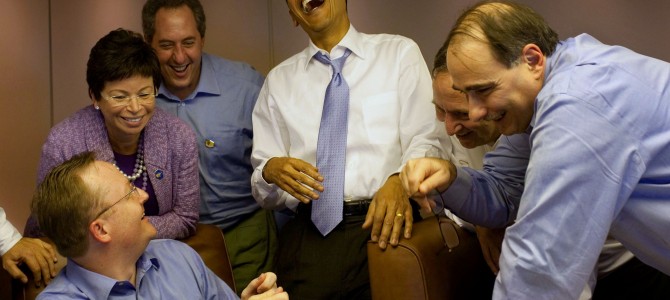Here is John Roberts, Chief Oracle of the United States of America, from today’s King v. Burwell decision:
Congress passed the Affordable Care Act to improve health insurance markets, not to destroy them. If at all possible, we must interpret the Act in a way that is consistent with the former, and avoids the latter.
What the statement illustrates is that, for Roberts, the law is a subordinate concern.
I know, I know, the Affordable Care Act is moral and decent and so that’s all that matters. Liberals demand we govern through empathy-based jurisprudence rather than anything resembling the antiquated tenants of founding principles. And if you care about the latter more than the former, the fact that Justices are aping the consequentialist arguments of the Left and then working backwards to make their legal justifications is probably the worst sign for checks and balances yet.
We’re going to be inundated with legal interpretations over the next few days. But imagine for a moment if a Supreme Court Justice argued that The Defense of Marriage Act was passed to improve marriage rather than destroy it, so we must focus on the former rather than the latter and uphold any retroactive provisions the Bush Administration had cooked up to make that law work? Or imagine the same for any legislation you disagree with.
Let’s concede to Roberts that the intentions of every politician is to improve on things. Republicans believe that further nationalizing health-care insurance is a bad idea and makes markets less competitive and more expensive. By overturning the law they want to improve health-care insurance markets, as well. That’s why we have legislatures, to debate these points of view and then pass laws. Those laws codify what a majority can agree on. And we have courts to judge the constitutionality of laws, not bore into the souls of politicians to decipher their true intent or find justifications to rubber stamp “democracy”—as Roberts puts it.
But in every case we must we must respect the role of the Legislature, and not undo what it has done. A fair reading of the legislation demands a fair reading of the legislative plan.
It was Roberts who helped rewrite Obamacare the first time around, making a penalty into a tax and for the first time in history allowing American government to coerce every citizen into buying a product from a private company as part of its powers to regulate commerce.
Here is Roberts again, abandoning law, lamenting that Obamacare was drafted in haphazard and vague way, right before ruling that laws can be implemented in any way the executive branch sees fit as long as judges deem their intentions righteous:
The Affordable Care Act contains more than a few examples of inartful drafting. (To cite just one, the Act creates three separate Section 1563s. See 124 Stat. 270, 911, 912.) Several features of the Act’s passage contributed to that unfortunate reality. Congress wrote key parts of the Act behind closed doors, rather than through “the traditional legislative process.” Cannan, A Legislative History of the Affordable Care Act: How Legislative Procedure Shapes Legislative History, 105 L. Lib. J. 131, 163 (2013). And Congress passed much of the Act using a complicated budgetary procedure known as “reconciliation,” which limited opportunities for debate and amendment, and bypassed the Senate’s normal 60-vote filibuster requirement. Id., at 159–167. As a result, the Act does not reflect the type of care and deliberation that one might expect of such significant legislation.
Once we pass massive pieces of legislation that effectively hands entire industries to regulatory agencies we are allowing the executive branch to govern in any way it sees fit. That said, it’s doubtful that SCOTUS would allow the same rationalizations used for King v Burwell to be employed for any legislation it found distasteful. Though Republican presidents keep nominating judges that disappoint conservatives, you can be assured that Hillary Clinton will not disappoint liberals with her picks.
But on the political side, it is, as Ben Domenech writes: a ruling that “presents an accurate reflection of the reality in Washington: that American politics no longer has real checks and balances.” Conservatives have to continue to be the check. Any kind of reform should be opposed because any kind of reform, no matter how narrow the focus theoretically is, will be an opportunity for boundless revision. All a political party has to do is cobble together a temporary majority, push through legislation that expands federal power and find some clairvoyant judges dedicated to empathy rather than their oath. As long as those politicians had good intentions.









